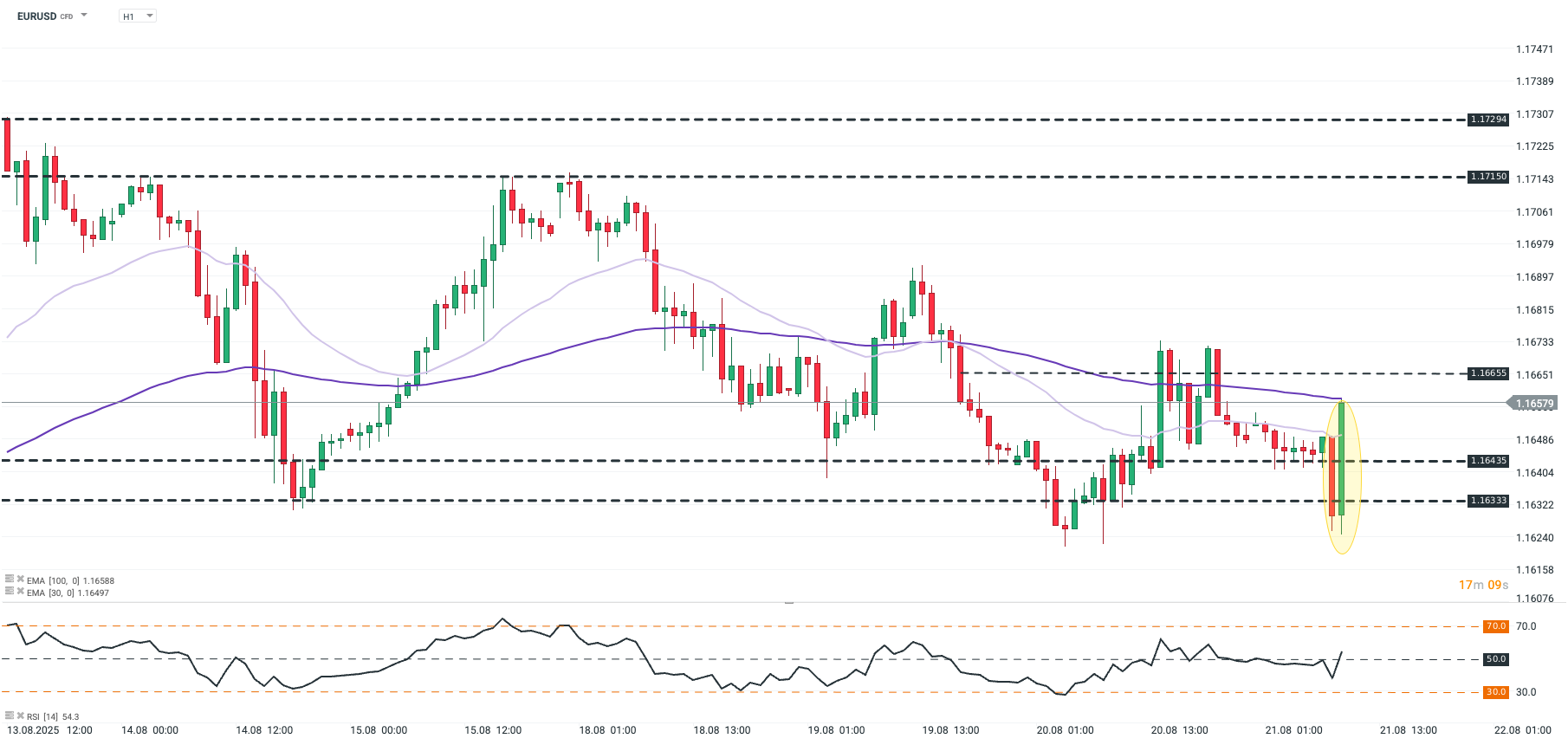08:15 AM BST, France - PMI Data for August:
-
HCOB France Composite PMI: actual 49.8; forecast 48.5; previous 48.6;
-
HCOB France Manufacturing PMI: actual 49.9; forecast 48.2; previous 48.2;
-
HCOB France Services PMI: actual 49.7; forecast 48.5; previous 48.5;
08:30 AM BST, Germany - PMI Data for August:
-
HCOB Germany Composite PMI: actual 50.9; forecast 50.2; previous 50.6;
-
HCOB Germany Manufacturing PMI: actual 49.9; forecast 48.8; previous 49.1;
-
HCOB Germany Services PMI: actual 50.1; forecast 50.4; previous 50.6;
The PMI report for two largest European economies came in significatly higher than expected, with German Composite rising despite estimated drop and French readings beating estimates all across the board. The only miss is the underperformance of German Services, which decreased more than expected.
French private sector activity showed tentative signs of stabilisation in August, with output broadly flat across manufacturing and services after months of contraction. Hiring momentum strengthened, marking the fastest job creation in over a year, even as firms faced persistent demand weakness and subdued client orders at home and abroad. Softer declines in new business, particularly exports, provided some relief, but inflationary pressures re-emerged as rising wages and raw material costs squeezed margins. Sentiment remains somewhat cautious, with manufacturing notably pessimistic amid competitiveness challenges and ongoing global headwinds.
German private sector activity expanded for a third consecutive month in August, with growth led by manufacturing, which posted its strongest production increase in over three years thanks to a surge in new orders. Services, however, stagnated, weighed down by weaker demand and softer business confidence. Despite rising output, employment continued to decline, particularly in manufacturing, as firms focused on productivity gains rather than capacity expansion. Pricing pressures re-emerged, with service-sector wage costs driving inflation, while manufacturers benefited from lower input costs. Overall, modest growth signaled resilience, but sectoral divergences highlighted lingering structural challenges.

EURUSD regains momentum, rising more than 0.2% after the release of PMI reports. The pair is currently testing the 100-period EMA on the H1 chart, though it remains shy of the recent highs around the 1.1670 mark. Source: xStation5

Economic calendar: US CPI in the spotlight (13.02.2026)

Morning Wrap: Global sell-off in the technology sector (13.02.2026)

Daily summary: Silver plunges 9% 🚨Indices, crypto and precious metals under pressure

US100 loses 1.5% 📉


